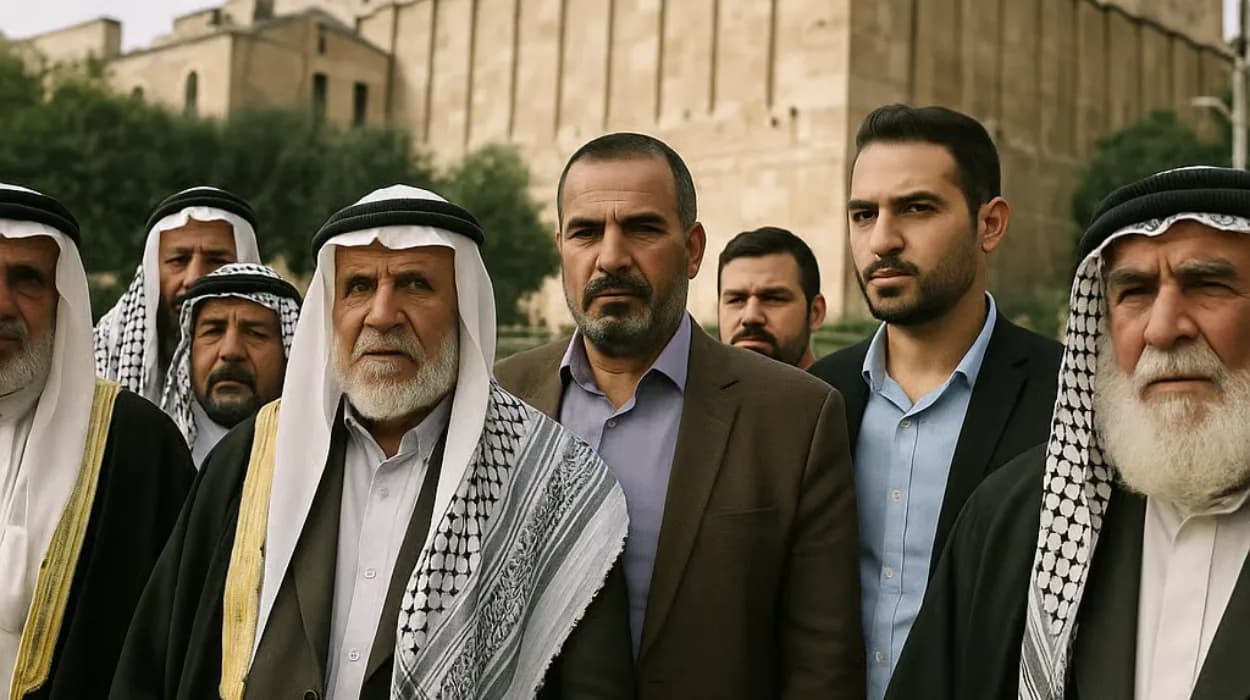Key Points
- Five
prominent sheikhs from Hebron have unveiled a revolutionary plan aimed at
addressing longstanding socio-political challenges in the region.
- The
plan includes initiatives for community development, conflict resolution,
and economic empowerment.
- The
sheikhs emphasize peaceful dialogue and cooperation with various
stakeholders.
- The
initiative has garnered mixed reactions from local residents, political
groups, and international observers.
- Authorities
have imposed curfews in some areas of Hebron amid concerns over potential
unrest.
- The
plan is seen as a significant development in the context of ongoing
tensions in the West Bank.
What is the revolutionary plan proposed by the five
Hebron sheikhs?
The five Hebron sheikhs have introduced a comprehensive plan
aimed at transforming the socio-political landscape of Hebron. While full
details of the plan remain closely guarded, sources indicate that it focuses on
fostering peace through dialogue, enhancing economic opportunities for local
communities, and addressing security concerns that have plagued the area for
years. The sheikhs, respected figures within Hebron’s social fabric, seek to
unite diverse factions by promoting cooperation and mutual understanding.
This initiative is described as revolutionary because it
departs from traditional approaches that often rely on confrontation. Instead,
the sheikhs advocate for constructive engagement with Israeli authorities,
Palestinian political groups, and international mediators. Their goal is to
create a sustainable framework that benefits all residents of Hebron,
regardless of their background.
Why have the sheikhs decided to launch this plan now?
According to local analysts, the timing of the plan
coincides with escalating tensions and recent security crackdowns in Hebron and
surrounding areas. As reported by Geo News on 8 July 2025, authorities have
imposed curfews and launched operations targeting organized crime and unrest,
including crackdowns on beggar mafias that have contributed to instability in
urban centres19. The sheikhs’ plan appears to be a response to these
developments, aiming to stabilise the situation before it deteriorates further.
The sheikhs believe that without a new approach, the cycle of
violence and economic hardship will continue unabated. By proposing a plan
centred on dialogue and development, they hope to offer a viable alternative to
conflict.
Who are the five sheikhs behind the plan?
While specific names have not been widely publicised to
avoid politicisation, the sheikhs are known to be influential community leaders
with deep roots in Hebron’s tribal and religious networks. Their authority
stems from decades of leadership in social, religious, and political affairs,
giving them the credibility needed to broker agreements among diverse groups.
Their collective experience includes mediation in local
disputes, involvement in charitable activities, and engagement with Palestinian
governance structures. This background positions them uniquely to spearhead
such a transformative initiative.
How has the local community reacted to the plan?
Reactions among Hebron’s residents have been mixed. Some
community members express cautious optimism, welcoming the prospect of peace
and economic improvement. Others remain sceptical, questioning whether the plan
can overcome entrenched divisions and external pressures.
Political factions have also responded variably. Some groups
view the sheikhs’ initiative as a positive step towards reconciliation, while
others perceive it as potentially undermining their influence or as
insufficiently assertive against occupation policies.
International observers and human rights organisations have
noted the plan with interest, seeing it as a potential model for grassroots
peacebuilding in conflict zones.
What measures have authorities taken in response to the
situation in Hebron?
In parallel with the sheikhs’ announcement, security forces
have intensified operations in Hebron. Geo News reported on 8 July 2025 that
curfews were enforced in multiple cities, including Hebron, as part of a
crackdown on organised crime and unrest1. These measures aim to restore
order but have also heightened tensions among the population.
The authorities’ actions underscore the fragile security
environment in which the sheikhs’ plan must operate. The balance between
maintaining public order and fostering dialogue remains delicate.
What are the potential implications of the sheikhs’ plan
for the wider region?
If successful, the plan could serve as a blueprint for
conflict resolution and community empowerment in other parts of the West Bank
and beyond. By prioritising peaceful engagement and economic development, it
challenges prevailing narratives that often focus solely on political
confrontation.
However, the plan’s success depends on broad-based support,
including from political leaders, civil society, and international actors. The
evolving geopolitical landscape, marked by policy shifts and economic pressures
globally, adds complexity to its implementation.
As noted in recent global trade analyses, economic
conditions worldwide are influenced by policy uncertainties and geopolitical
tensions, factors that indirectly affect local initiatives like those in Hebron3. Strengthening local economies through such plans
could contribute to broader regional stability.
This revolutionary plan by the five Hebron sheikhs marks a
significant moment in the ongoing efforts to address the complex challenges
facing Hebron. With a focus on dialogue, development, and peace, it offers a
hopeful path forward amid a backdrop of tension and uncertainty. The coming
weeks will be crucial in determining whether this initiative can translate into
tangible change for the people of Hebron and potentially inspire similar
efforts elsewhere.
